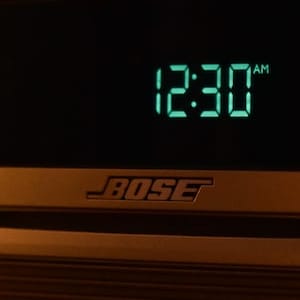wind back the clock: Idiom Meaning and Origin
What does ‘wind back the clock’ mean?
The idiom "wind back the clock" means to go back to a previous time or to reverse the effects of time in order to recreate a past situation or feeling.

Idiom Explorer
The idiom "win the battle, but lose the war" means to achieve a small victory or success in a specific situation, but ultimately suffer a larger or more important defeat in the overall context or long-term outcome.
The idiom "wind off" means to gradually relax or unwind from a stressful or intense situation. It refers to the action of releasing tension or pressure, much like winding off a tightly wound object.
The idiom "wind down" means to relax or become less active and energetic after a period of intense activity. It implies a gradual decrease in intensity or pace, allowing oneself to unwind and destress.
The idiom "wind at one's back" refers to a favorable situation or circumstance that helps someone move forward or achieve success more easily.
The idiom "win back" means to regain or recapture something that was lost, typically through effort or persuasion.
The idiom "win the day" means to be successful or victorious in a particular day or situation.
The idiom "whistle in the wind" means to make an attempt or statement that has no result or impact, as the sound of a whistle is often carried away and lost in the wind.
The idiom "whisk away" means to quickly and unexpectedly take someone or something away from a place or situation.
The idiom "whip through" means to do something quickly and effortlessly, often completing a task or activity in a short amount of time.
The idiom "whip hand" means having control or advantage over a situation or person. It refers to being in a position of power or authority.
Unveiling the Enigma
The idiom "wind back the clock" is a commonly used phrase in the English language. It has a figurative meaning that is understood by native speakers of English. The idiom is believed to have originated from the concept of winding back a clock to a previous time, suggesting a desire to go back in time or return to a previous state or situation.
When someone uses the idiom "wind back the clock" it is often meant metaphorically. It signifies the desire to relive or recreate a past event or experience. This could refer to an individual's personal life, a specific moment in history, or a particular point in time.
The idiom is typically used when reminiscing about the past or expressing a wish to bring back something from the past into the present. It is often employed to evoke a sense of nostalgia and longing for a time gone by. The idiom can also be used more broadly to refer to efforts to revert or reverse progress or change that has occurred over time.
For example, someone might use the idiom "wind back the clock" when discussing a memorable vacation they had taken several years ago and expressing a desire to relive that experience. Similarly, the idiom could be used when reflecting on an important historical event and wishing to go back in time to witness it firsthand. This desire to "turn back the clock" and experience the past again can be a powerful longing.
The idiom "wind back the clock" is frequently used in both informal and formal contexts, such as in casual conversations, literature, and media. It has become a familiar phrase in the English language and is easily understood by native speakers.
While the origin of the idiom is unclear, it is believed to have derived from the physical act of winding back a clock. This action involves manually turning the clock hands or adjusting the mechanism to set the time back to an earlier point. The metaphorical use of "wind back the clock" emerged as a way to express the desire to turn back time and return to a previous moment or state. In other words, it is similar to the idioms "turn back the clock," "put the clock back," and "go back in time."
Each of these idioms carries a similar meaning of wanting to return to a previous time or situation. "Turn back the clock" suggests the act of physically reversing the clock's hands to a previous time. It is often used to refer to events or situations that one wishes could be undone or changed. Similar to "wind back the clock," it conveys a sense of nostalgia and longing for the past.
"Put the clock back" is another idiom that shares a similar meaning. It can be used to describe the act of resetting a clock to an earlier time or reversing its progress. This idiom is often used when discussing the need to undo or reverse a decision or action. It signifies a desire to go back to a previous state or situation and is commonly used in conversations about regret or missed opportunities.
"Go back in time" is yet another idiom that relates to the desire to return to a previous moment or era. It is often used when discussing historical events or personal experiences. This idiom can evoke a sense of wonder and curiosity about what it would be like to witness and experience a different time period. It reflects the human fascination with the past and the longing to travel back in time.
The idiom "wind back the clock" has a figurative meaning that conveys the desire to go back in time or return to a previous state or situation. It is often used metaphorically to express a longing for the past and a wish to relive or recreate past events or experiences. This idiom is commonly used in both informal and formal contexts and is easily understood by native speakers. It is related to idioms such as "turn back the clock," "put the clock back," and "go back in time," which all carry a similar meaning of wanting to return to a previous time or situation. These idioms reflect the human fascination with the past and the longing to experience it again.
Example usage
Examples of how the idiom "wind back the clock" can be used in a sentence:
- After their reunion, John and Linda felt like they were able to wind back the clock and relive their youthful days.
- The historian's research allowed him to wind back the clock and provide a detailed account of the events that took place centuries ago.
- Listening to his favorite old songs, Mike couldn't help but feel like he was winding back the clock to his teenage years.
More "Time" idioms



